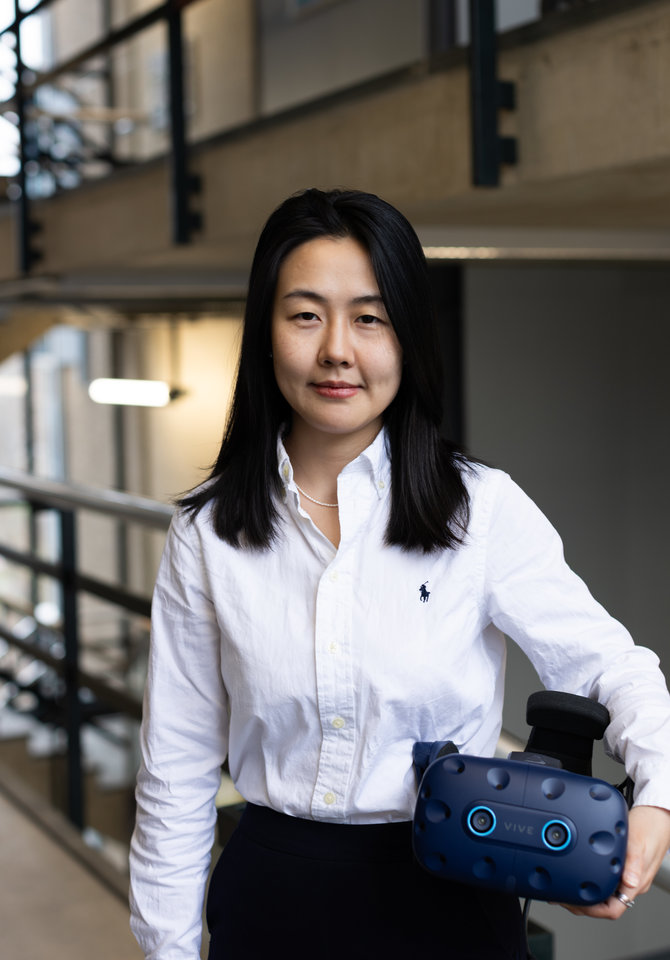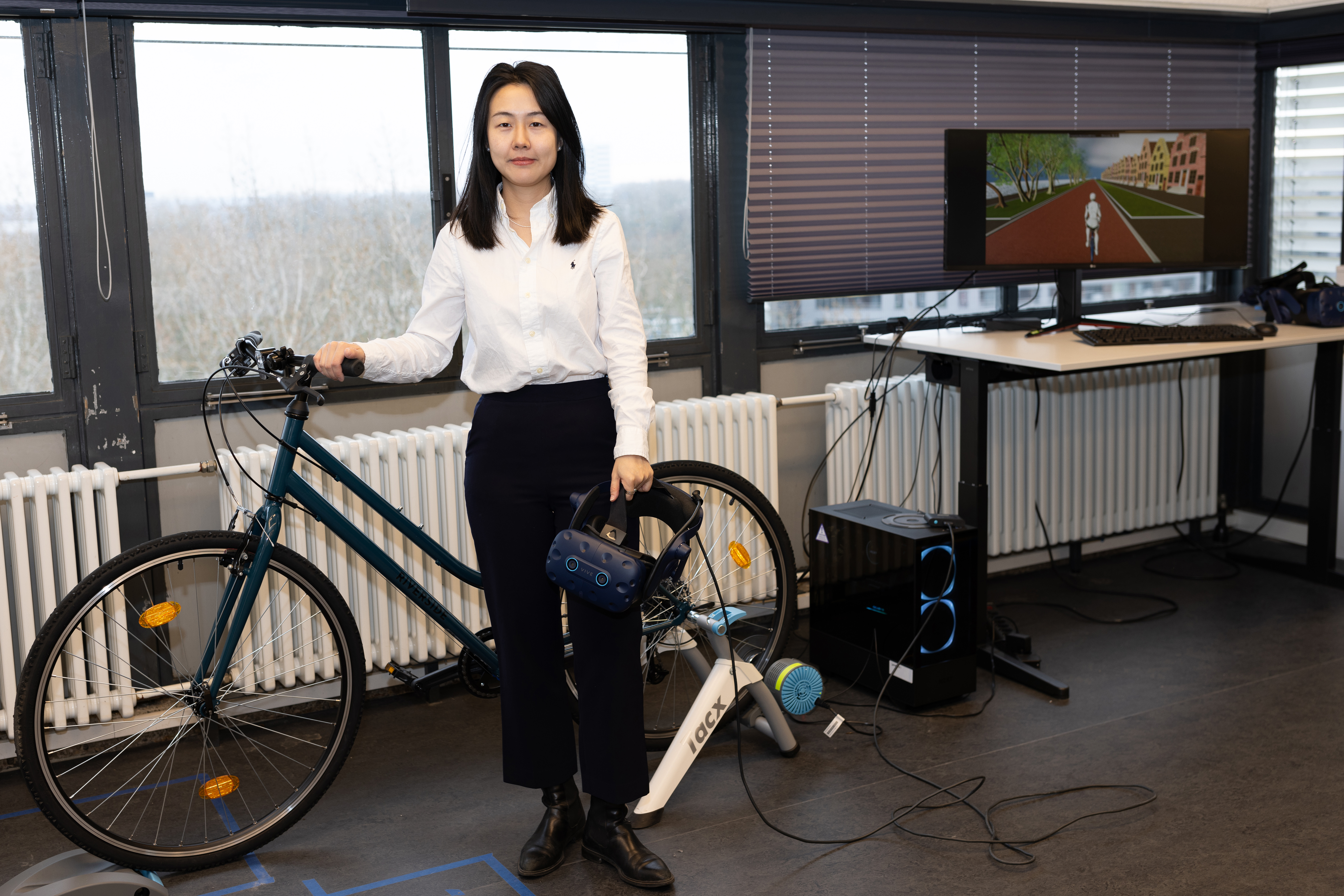Transforming Transportation Education with XR: Yan Feng's Journey
Yan Feng, a visionary assistant professor at the Transport & Planning Department of Civil Engineering and Geoscience Faculty, is not just a transportation expert; she's also a pioneer in eXtended reality (XR) for mobility research and education. Leading the Mobility in Extended Reality Lab, she's reshaping how we study transportation and mobility. Let's explore how XR is revolutionizing education with a focus on transportation and civil engineering.
Traditional research methods in transportation can lack engagement and control, especially when exploring complex and potentially dangerous scenarios. Yan Feng recognized XR's transformative potential in creating immersive and safe environments for research and learning. Identifying a gap in XR education for civil engineering students, together with XR Zone by NewMedia Centre she devised an innovative solution—a master course on XR for civil engineering. Launched in 2023, this course empowers students to apply XR technology to solve real-world civil engineering challenges. Departing from traditional teaching methods that merely deliver lectures, this course offers students hands-on XR projects and experiential learning. Through theoretical lectures, technical lectures, and workshops, students gain fundamental knowledge and key skills required to apply XR to the civil engineering domain, bridging the gap between theory and real-world applications in civil engineering. Students have the autonomy to choose projects that align with their background, such as transportation, construction, and infrastructure.

How did it all start?
Yan Feng's journey into XR began with a fascination for virtual reality (VR) during her PhD study, where she recognized its potential for immersive experiences and explored VR for researching evacuation and wayfinding behavior in complex buildings. Transitioning to her role as Lab Director and assistant professor, she expanded her horizons to encompass XR's various forms, including VR, augmented reality (AR), and mixed reality (MR) for mobility research. Her goal was to elevate transportation research by leveraging the innovative potential of XR technologies.
Yan Feng's journey in XR wasn't a solo mission. Collaborating with the XR Zone forms impactful partnerships beyond technical problem-solving. Together, they ventured into education and innovation projects, leveraging XR's capabilities to address real-world challenges in transportation and mobility.

The use of XR for education beyond the Lecture Hall:
Yan Feng doesn't confine XR's potential to the classroom. By integrating XR with other cutting-edge technologies like physiological and EEG sensors, she explores new frontiers in understanding transportation dynamics. For example, using XR, students can simulate interactions between wheelchair users and traffic, fostering inclusive urban environments through data-driven insights.
What is The Future of Transportation Education?
Looking ahead, Yan Feng envisions XR as more than just a tool for data collection—it's a catalyst for understanding human behavior in transportation scenarios that we couldn’t easily study via conventional methods. Whether it's designing resilient infrastructure or shaping future transportation policies, XR offers boundless opportunities for innovation and collaborative efforts in transportation education and research.
If you're curious about XR and the future of transportation and mobility, feel free to contact Mobility in Extended Reality Lab and XR Zone by NewMedia Centre to explore possibilities. Together, we can drive innovation and make transportation education more exciting and impactful!